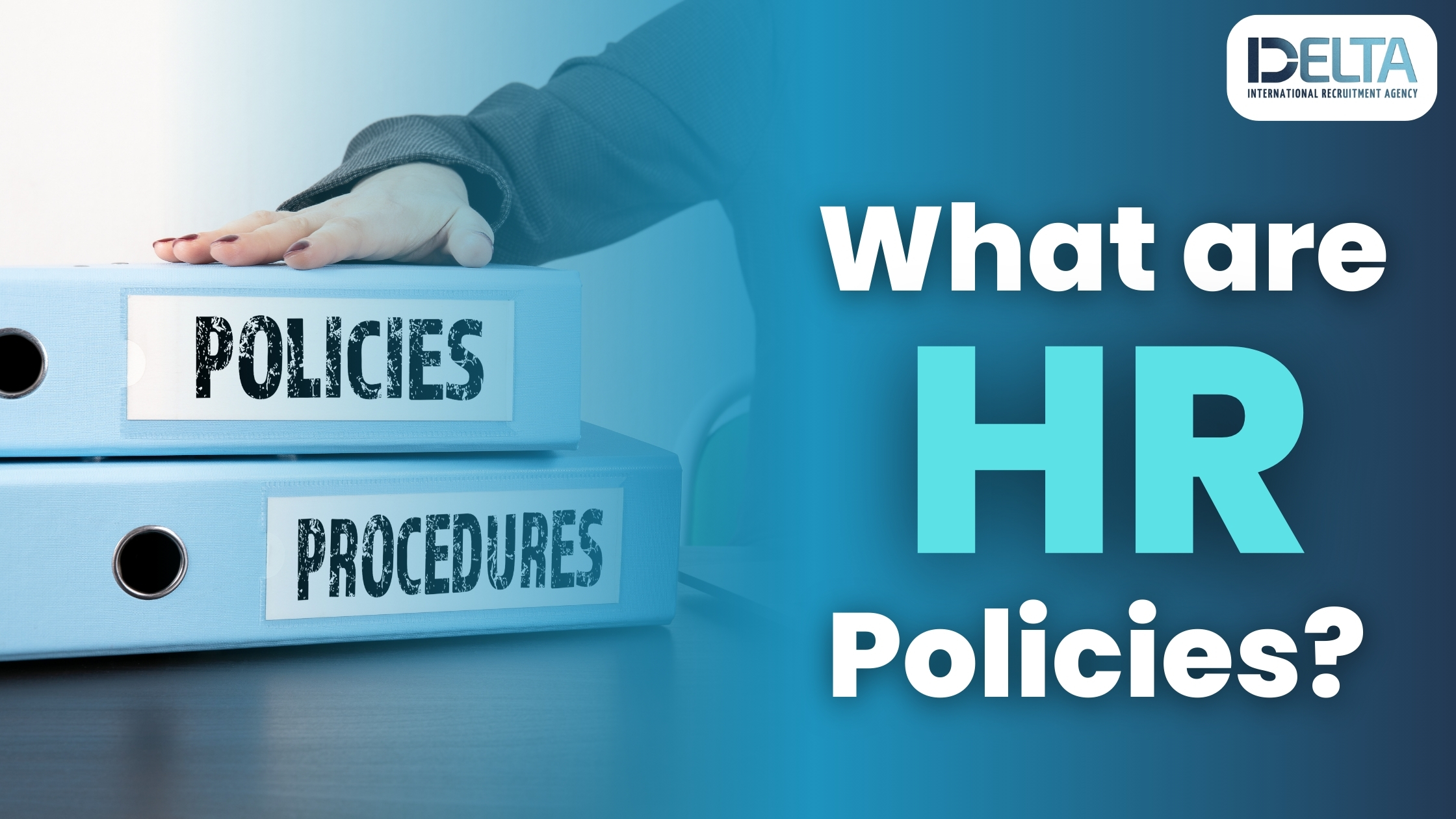HR policies and procedures are like instruction manuals for work. They guide us on what to do in different work situations. They're important because they help a company to follow its HR strategy properly.
This paper talks about how having these policies can help a company. It also explains who makes these rules in both big and small companies, and it tells us about the different kinds of rules there are.
What do we mean by HR policies?
HR policies are like written instructions on how to deal with lots of different things at work. They explain what's right and wrong for both bosses and workers. These rules are important because they make sure everyone is treated fairly and equally in the company. They also help the company avoid legal problems. But it's really important that everyone understands and follows these rules properly for them to work well.
HR Polcies may differ for Gulf Recruitment, please check the relevent misnitry.
Connection in HR Rules, Steps, and Plans
HR policies should match the organization's size and culture to help its overall strategy:
- Tailored Approach: HR policies should match the size and culture of the organization to support its broader strategy effectively.
- Understanding HR Strategy: An HR strategy outlines how HR can help achieve the organization's goals. It focuses on long-term concerns like structure, values, commitment, and planning for future needs. Learn more in our Strategic Human Resource Management factsheet.
- Guidance for Everyone: HR policies offer general advice for managers and staff on various work-related issues.
- Step-by-Step Instructions: HR procedures give detailed steps for specific situations. For example, they might outline time limits for meetings.
- Harmony with Strategy: HR policies should align with HR strategies and work well with HR procedures to support the organization's goals effectively.

Image Source: hrone.cloud
Why to have HR policies?
HR rules help everyone trust each other and feel treated fairly. They show what both bosses and workers should do. These rules can make employees feel motivated and help the company look good. They also help bring in and keep talented people, which is good for both workers and the company.
HR rules also give clear instructions based on laws. This helps avoid legal problems, like going to court over work issues.
Some HR rules are needed by law. For example, in the UK, any company with five or more workers must have a written safety plan. There are also rules about how to handle problems like discipline and complaints.
Even if a rule isn't required by law, it's often useful to have one. It makes it clear what the company's position is on certain things, and it helps workers understand what's expected of them.
Reasons Why Organizations Make or Update HR Policies:
- Compliance with Laws: To follow and match existing or new laws and court decisions.
- Supporting Business Goals: To help the company's strategy.
- Keeping Up with Trends: To stay updated with new ways of managing people effectively.
- Adapting to Internal Changes: To handle changes happening within the organization.
- Meeting Company Standards: To follow guidelines from the main office or parent company. This helps stay competitive, especially in different international markets. For example, reward policies might be changed to attract or keep employees in other countries.
- Growing Consistently: For smaller companies, they might want a more formal and steady approach that matches their needs as they grow.
Who creates HR policies?
As organizations get bigger, they usually make official HR rules.
This is what happens in different-sized organizations:
In Small Organizations:
- HR policy development might be given to an existing employee as an extra task.
- Or, they might hire a specialist for a short time to make or check specific rules.
In Medium Organizations:
- An HR specialist might be asked to make new policies, check old ones, and tell everyone about them.
In Large Organizations:
- HR and other experts often handle important things like rewards, helping workers grow, laws about work, and how workers get along.
- They get help from HR specialists and other staff for everyday tasks.
What rules should organizations have for their workers?
HR rules should fit the special needs and features of the organization and its workers.
Think about these types of rules for different parts of work:
Starting Work:
- How to pick new workers.
- Rules for new workers like training and referral rewards.
During Work:
Rewards:
- How jobs are ranked and how well work is rewarded.
- Stuff like pensions and other bonuses.
Health and Safety:
- Covering things like dealing with stress and dangerous materials.
Worker Relations and General Issues:
- Besides rules for discipline and complaints, there are rules for things like time off, holidays, and parental leave.
Learning and Growing:
- Rules for training, career growth, and paying for professional stuff.
Other Stuff:
Rules for other things important to the business, like being responsible or not bribing people. Also, rules for using social media at work.
Ending Work:
Rules for leaving work, like quitting or getting fired. Also, stuff about how long you need to tell before leaving.
Treating Everyone Fairly:
Making sure everyone gets treated fairly, no matter who they are. Discriminating based on things like gender or race is illegal in the UK.
Outside the Company:
Sometimes, rules need to cover working with other companies. It's smart to think about what rules are needed for these situations.
Contact Delta Internatioanl Recruitment Agency for Overseas Recruitment Services from Pakistan.
Recruitment Industry: HR Industry


.jpg)

